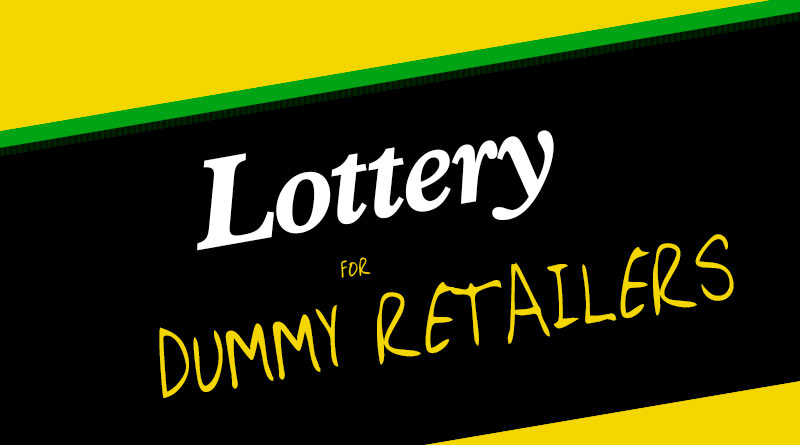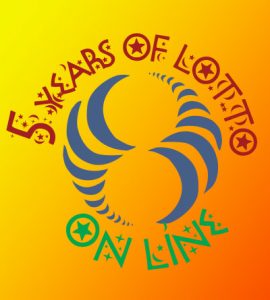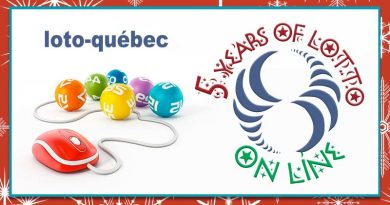Part 4 – An Increasingly Fragile And Less Profitable Category
It’s been over five years now since Loto-Québec started selling online lottery, a move that initially sparked great concern among retailers.
So five years later, where are we? As part of our SPECIAL FEATURE LOTO-QUÉBEC, FIVE YEARS OF LOTTERY ONLINE, DepQuébec takes a deep look at the phenomenon throughout the week to assess its various impacts on brick-and-mortar retailers.
Today, in the fourth and final part of our series, we look at the lottery category in general and what future holds for retailers.
For players and consumers, lottery is a game of luck and chance. For retailers however, it is a key product category on which to base part of their profitability and business viability.
Unfortunately, sustained profitability is proving increasingly fragile and uncertain.
To conclude our series highlighting the 5th anniversary of Loto-Québec’s online lottery offering, we take a look at this category as a whole and how it has evolved over the last 10 years.
A little history
Speaking of an anniversary, Loto-Québec will soon be 50 years old. Indeed, the Quebec Lottery and Racing Corporation (Loto-Québec) was founded in 1969, the first lottery company to be created in Canada. On March 14, 1970, Loto-Québec made its first draw (Inter-Loto at $ 2). In 1978, it acquired computers and terminals to offer real time lottery (pseudo-active). Since August 27, 2012, Loto-Québec has also started offering online lottery from a computer or a mobile phone. More specifically, Loto-Québec offers several types of lottery products including: instant lottery, traditional lottery, real-time lottery (pseudo-active), sports betting and entertainment-based betting. The lottery and gambling offer constitutes, in Quebec, a state monopoly. For this purpose, the lottery must originate from Loto-Québec and report directly to the Finance Ministry of the Quebec government.
A few numbers
Here are some figures summarizing Loto-Québec’s 2016-2017 fiscal year:
- Consolidated sales by Loto-Québec reached $ 3.636 billion;
- Consolidated gross profit was $ 2.236 billion and consolidated net earnings, $ 1.231 billion;
- Loto-Québec’s contribution, in the form of dividends paid to the Québec government, amounts to $ 1.206 billion;
- The lottery sector alone generated total sales of $ 1.828 billion, or 50.3% of consolidated sales, but only 38% of net revenues.
- Over $ 128.298 million was paid in commissions to 8,479 retailers, an average of $ 15,131 to each.
- More specifically, the commission paid for retailers is 6% of lottery ticket sales generated through the terminal, 8% of printed and instant lottery tickets, 10% for special draws, 3.5% for Web Money and, ultimately, a 1% bonus on prizes of $ 1,000 and over.
- This 1% premium on jackpots paid to retailers has been considered since January 1, 2014 as a taxable business income and is therefore subject to tax deductions.
- The 2016-2017 fiscal year was marked by a record number of prizes won of $ 1 million or more, or 104 lots, enabling 122 people to become millionaires. A total of $ 987.6 million was distributed to lottery winners, a significant increase from $ 935.8 million the previous year.
A general decline in sales … momentarily held back
Unlike elsewhere in the country, lottery sales in Quebec have been in sharp decline for the past 10 years. Despite a population increase of more than 9% and inflation of more than 14%, nominal sales have never been able to catch up with, or even exceed, those reached during the peak year of 2008. Thus, if sales would have remained constant (in volume and value) compared to 2008, they would be 30% higher than they are today.
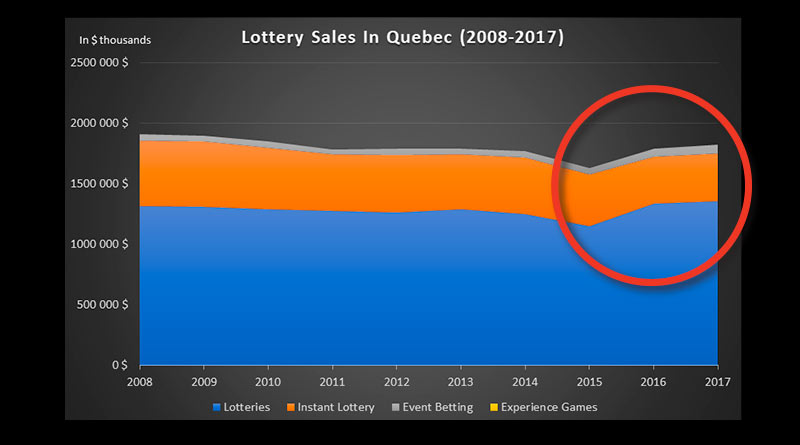
The lottery segment that suffered the most from the on-going decline was instant lottery: this category went from $ 540 million in 2008 to just $ 384 million in 2017, a decrease of 29%.
However, despite the fact that this decrease affects a category commissioned at a higher rate (8%) than traditional lotteries (6%), the commission rate to retailers has remained relatively stable, or even increased slightly.
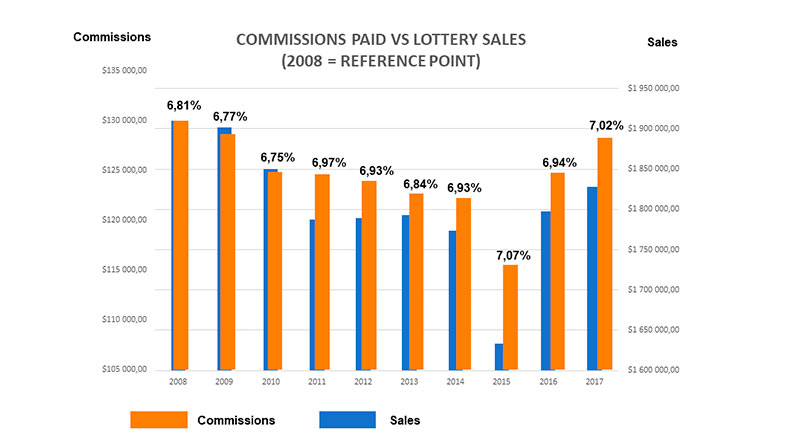
Or course, lottery remains a major mass market product, but over the next decade, the negative trend for retailers of eroding sales, revenues and profitability will likely continue due to:
- The general decline in sales despite the population increase that we have seen over the past 10 years, especially with regards to instant lotteries;
- The transfer of in-store sales to online sales which may occur and for which commissions are much lower, if not zero;
- The increased burden of lottery management that will be required of retailers (administration, time, management fees etc.);
- Loto-Québec’s business philosophy, which, as demonstrated by its recent decisions and policy related to online sales, has no intention to give an inch to retailers and even regain lost ground if necessary.
The only factor that can stop this downward trend is the draw of very large prizes (eg $ 60 million) and the fact that they are won here, which is only a matter of luck.
But at some point, it will eventually be up to retailers to pressure the government to find solutions to help local businesses offset these lost revenues. Through its numerous uncoordinated and political interventions (tobacco, alcohol, minimum wage, fees and regulations), the governement will end up choking the convenience store industry in Quebec, causing store closures and job losses.

